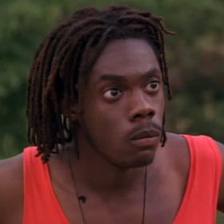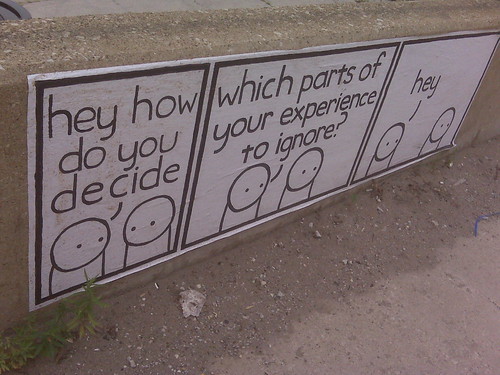I’ve been keen to get more of our staff blogging, since I know from first hand experience what a powerfully reflective process it can be. I’ve always found that taking the time to write causes me to think more deeply about what I do, it makes me more aware of the ideas and approaches that I’m using with those I teach, and it’s also made me a much better writer than I once was. I’d argue that blogging really helps improve your communication skills on many levels while building a stronger foundation for understanding your own beliefs and convictions. There is something both magical and affirming about putting your thoughts down in words, and even moreso when you decide to publicly share those words with others. As you can probably tell, I’m a bit of a fan of blogging (or connective writing, to borrow a phrase from Will Richardson)
During 2011, our school had the opportunity to apply for an AGQTP grant. This grant program is funded by the Australian government’s DEEWR as part of the NSW Quality Teaching Program and, in the case of our school, administered by the AIS. Its goal is to help teachers develop their own professional learning through the creation of action research projects. Our principal asked me to put a proposal together, which turned out to be about creating a blogging project for our Year 6 teachers and students. It was quite successful, and as well as a complete written report, we also produced this 7 minute video to summarise what we learned.
I remember tweeting about the fact that we were applying for a grant to get our teachers blogging, and getting a reply back from my kiwi mate Allanah King asking why on earth you’d need a grant for that. Allanah, who is not just a fabulous blogger herself but a real pioneer in the ways she has used blogs and other social technologies with her students, found it difficult to understand why blogging had to be a complicated and beaurocratic process. She quite rightly pointed out that you don’t need a government grant to blog, you just need to open one of the many free blogging tools available and start writing! And she is correct. But what the AGQTP grant process bought us was the time to do that. By providing the funding to get our Year 6 teachers released from class, we could set aside the time to learn this new skill in a far more focused and somewhat systematic and committed way. While it would be nice to think that teachers would just go and learn new skills in their own time for their own motivations, sometimes that just isn’t realistic, so getting some financial assistance to help build teacher capacity was seen as a very welcome thing.
As a follow up, I was also interviewed about this by Selena Woodward from CEGSA in Adelaide after she saw the video. Selena was intrigued by the deliberately open and public nature of our blogging project, a feature that I was insistent was critically important to the project. Blogging behind closed doors, without the potential for writing to an authentic audience, seems completely pointless to me. The South Australian DECS attitude to blogging is somewhat less open-minded. Some people refer to this reluctance as “the Upton effect” because of the shitstorm that DECS created a few years ago when they very publicly showed their cyber-ignorance by closing down teacher Al Upton’s very popular class blog, the MiniLegends. The regrettable fallout from what happened to Al seems to have caused many South Australian teachers to be overly gun-shy of any online use that might be vaguely interpreted as “social”. It’s such a shame.
Back in 2008, I had the pleasure of giving the keynote address at the CEGSA conference, where my topic focused on how important it is to be a connected educator, to form PLNs, to get both ourselves and our students connected and functioning safely in this highly networked world we live in. I blogged my thoughts about that keynote at the time, and looking back at that post now, and hearing that so many educators are still just as wary and frightened of the online world as they were in 2008, makes me sad and disappointed for the kids in their care. It is disappointing that in the last 3 years, during which I believe we are finally starting to see far more educators beginning to understand the really significant shifts in the way technology is affecting the process of education, that there are still such outdated attitudes to learning online.
Overall though, I’m happy with the progress we made with our own blogging this year. It was progress. It wasn’t perfect, and there is lots that I’d change next year, but it’s a good start.


 I was following a discussion on a mailing list today about the various internet blocking and filtering policies that different schools implement. Someone said their school was revising their fitering/blocking policy and wanted to know what others were doing. From the replies I saw, it seems that many schools are still running scared of what their kids might do on the web, and still block access to useful services like YouTube and Flickr, and pretent things like Facebook and Twitter don’t exist. Seems that even after 10 years, Web 2.0 is still a scary bogieman to many schools.
I was following a discussion on a mailing list today about the various internet blocking and filtering policies that different schools implement. Someone said their school was revising their fitering/blocking policy and wanted to know what others were doing. From the replies I saw, it seems that many schools are still running scared of what their kids might do on the web, and still block access to useful services like YouTube and Flickr, and pretent things like Facebook and Twitter don’t exist. Seems that even after 10 years, Web 2.0 is still a scary bogieman to many schools.